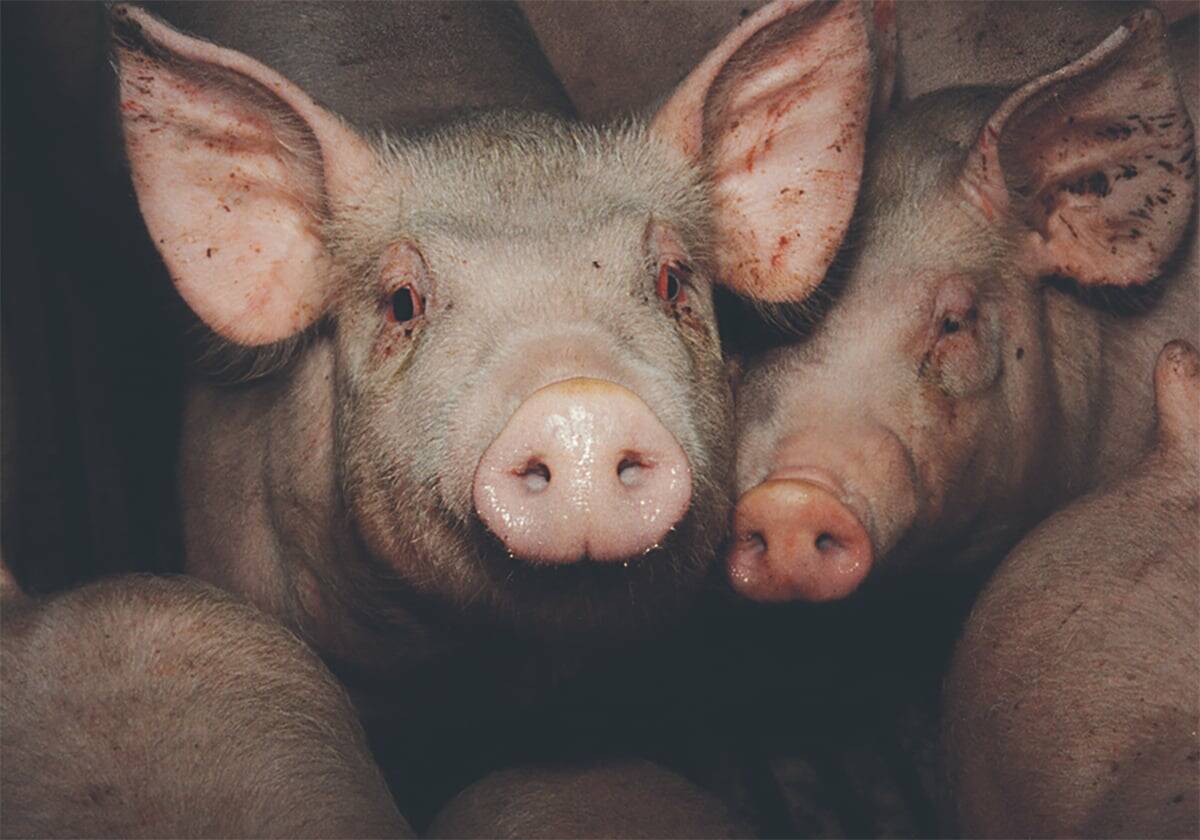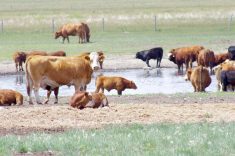Farmers who want to vote in Canadian Wheat Board (CWB) elections will have had to produced 40 tonnes of grain in the current or previous two crop years if Bill C-27 becomes law.
The Canadian Wheat Board Payments and Election Reform Act introduced in the House of Commons earlier this month also promises to speed initial and adjustment payments.
Currently CWB permit book holders and “interested parties” automatically get ballots for CWB director elections. Interested parties include crop-share landlords and mortgage holders.
Grain producers who don’t have permit books can apply for a vote if they can demonstrate they produced grain in the current or previous two crop years.
Read Also

Scientists discover cause of pig ear necrosis
After years of research, a University of Saskatchewan research team has discovered new information about pig ear necrosis and how to control it.
Crop-share landlords will still be eligible to vote if their share is at least 40 tonnes.
“This bill (C-27) will clarify that hobby farmers, retired farmers and farmers who haven’t produced significant amounts of grain in recent years should not be deciding who directs the Canadian Wheat Board,” Agriculture Minister Gerry Ritz told reporters. “This bill is something farmers are calling for and the Canadian Wheat Board itself supports.”
Package deal
The latter is true, sort of. CWB chair Larry Hill said the CWB generally supports the 2005 CWB election review panel’s recommendations as a package. One of its recommendations is farmers should have to deliver (not just produce) at least 40 tonnes to get a ballot.
The review panel recommended 13 other changes, including establishing an autonomous election commission to replace the Election Co-ordinator hired to oversee elections.
In the last election two years ago, the Election Co-ordinator said it wasn’t his job to decide who should register as a third party. And some third parties never reported their spending to the Election Co-ordinator, even though that’s required under the law.
The CWB has a list of its own recommendations, including clarifying the powers of the Election Co-ordinator. Ritz said additional changes to CWB election rules will be made through regulation, but didn’t elaborate.
He also said the government will not try to remove the CWB’s single-desk marketing powers before this fall’s CWB election.
Non-CWB grains included
C-27 proposes farmers would have to grow 40 tonnes of grain to get a vote, but not necessarily have to deliver any of it to the CWB. And there’s the rub, according to the Friends of the Canadian Wheat Board (FWCB) and National Farmers Union (NFU). They say only farmers who deliver grain to the CWB and pay for its operation should get a vote.
“In elections for canola, pulse crop, or flax organizations, only the farmers who grow those crops get a ballot,” NFU president Terry Boehm said in a news release. “What the minister is doing here is analogous to excluding some smaller cattle farmers from voting in cattle association ballots, but allowing hog farmers to vote.”
The FCWB says the 40-tonne threshold will disenfranchise legitimate voters.
The NFU and FCWB suspect proposed changes in voter eligibility is another government attempt to stack the deck in favour of anti-single desk candidates.
The Grain Growers of Canada (GGC) supports C-27.
President Doug Robertson said the GGC hasn’t pushed for review panel’s other recommendations hoping C-27’s narrow focus will meet with opposition approval, ensuring passage before Parliament breaks for summer in late June.
Ritz said he can’t see anyone blocking legislation to get money to farmers faster.
Before the CWB can increase its initial payments to farmers, the request must be assessed and approved by the departments of Agriculture, Finance and the Treasury Board and be approved by cabinet. That typically takes six to eight weeks, but sometimes longer.
C-27 proposes bypassing the Treasury Board and cabinet, cutting the process time in half, Ritz said.














